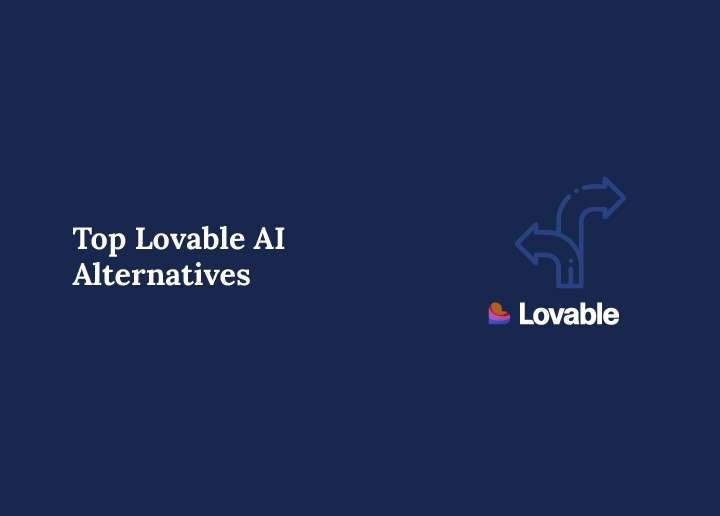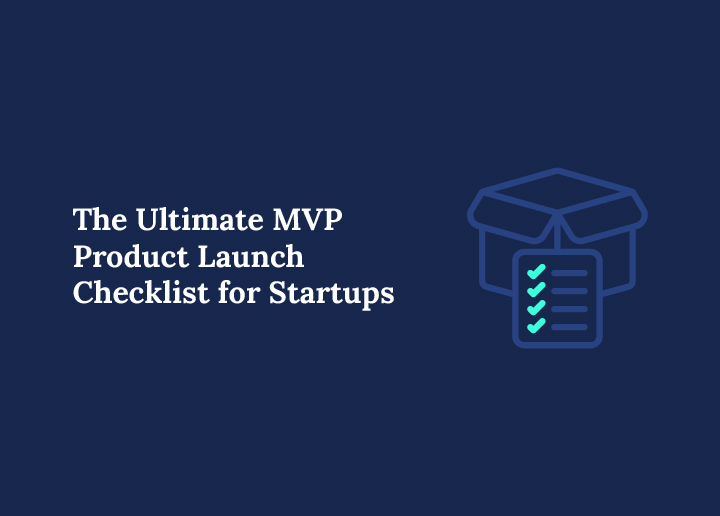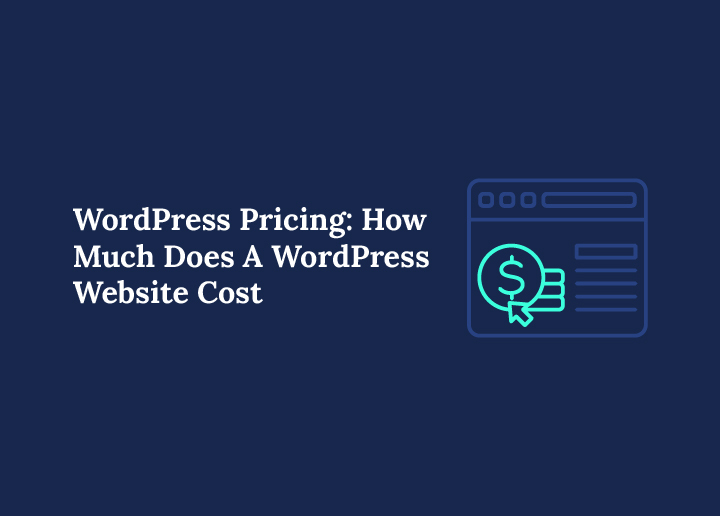Feeling overwhelmed by AI hype? You’re not alone. As powerful as mainstream tools like ChatGPT are, many users are starting to experience what’s being called “AI fatigue.” Whether it’s concerns about data privacy, rising subscription costs, or just wanting a tool that feels more human and less robotic, people are now actively seeking out lovable AI alternatives that are smarter, safer, and more aligned with their needs.
In 2025, the landscape of AI alternatives is richer than ever. From open-source platforms and privacy-first models to tools designed for specific use cases like research, content creation, or casual chatting, there’s a growing list of lovable options worth exploring.
This guide is perfect for anyone looking to break away from the usual AI giants, whether you’re a business owner in need of reliable automation, a freelancer craving creativity, a student doing research, or a web developer searching for customizable solutions.
We’ll walk you through the top lovable AI alternatives in 2025, highlighting what makes each one unique, and why they might just be the better fit for your personal or professional workflow.
Why Consider Lovable AI Alternatives in 2025?
In a world dominated by big-name AI platforms, it’s easy to assume they’re the only (or best) option. But in 2025, that’s far from the truth. The rise of lovable AI alternatives reflects a growing shift in user priorities, focusing more on transparency, specialization, affordability, and trust.
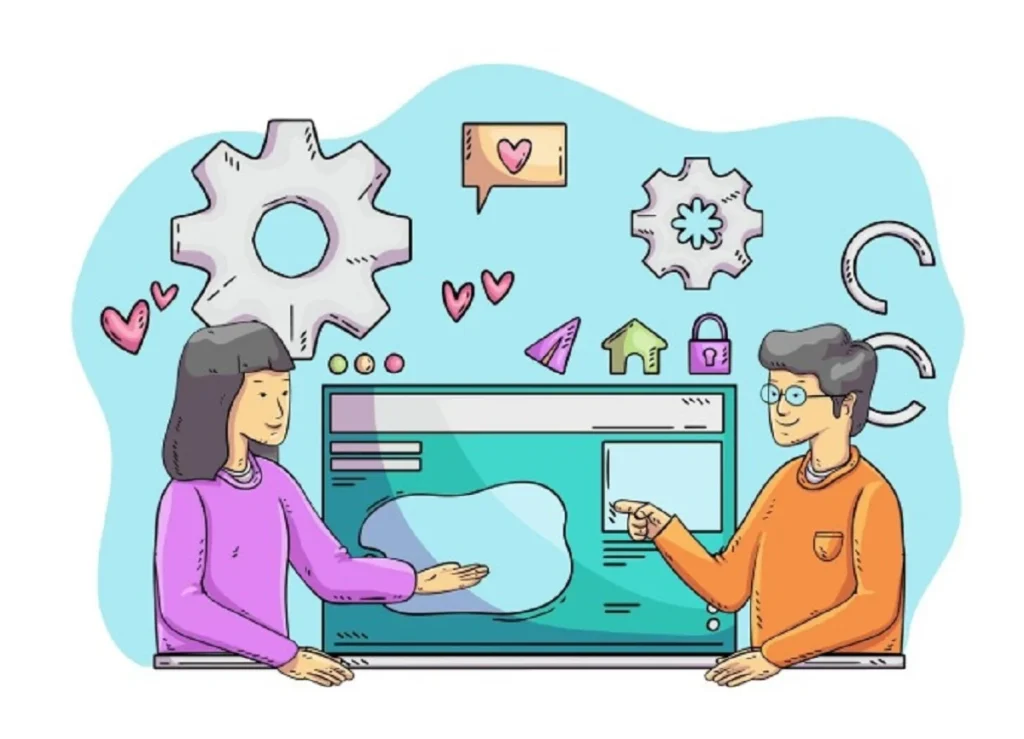
Data Privacy and Ethical AI Concerns
With increased scrutiny on how major AI tools collect and store user data, privacy has become a hot topic. Many users, especially businesses and developers, are turning to AI alternatives in 2025 that are more transparent about data usage and committed to ethical AI development. Open-source tools, in particular, allow for more control and visibility, which builds trust with users who value security and compliance.
Filling the Gaps in Mainstream AI
While tools like ChatGPT are impressive generalists, they’re not always ideal for niche or specialized use cases. Whether it’s AI for legal research, healthcare, education, or creative writing, best AI tools are emerging to meet very specific needs, often with better context, domain understanding, and accuracy. These alternatives are built with purpose, not just power.
Budget-Friendly and Open-Source Options
Not everyone can afford premium AI subscriptions, especially solopreneurs, startups, or educational users. That’s where open-source AI tools and low-cost ChatGPT alternatives come in. They offer similar or even better performance at a fraction of the cost, or completely free. Plus, open-source models are highly customizable, making them a great fit for developers and product teams who want to build on top of existing frameworks.
More Human, Creative, or Localized AI Experiences
Another major reason users are switching is the desire for AI that feels more “human.” Whether it’s a more natural tone, emotional intelligence, or better localization for specific regions and languages, many of the AI alternatives in 2025 aim to create a more authentic interaction. This is especially important for content creators, marketers, and customer support teams that need culturally aware, conversational AI.
Discover: How to Create AI Images for a WordPress Website
Looking for A Human Touch in Your Website Design?
While AI tools are great, nothing beats a professionally crafted website tailored to your brand. Work with our expert design team to build a stunning, high-performing site.
Top Lovable AI Alternatives to Try in 2025
Looking for an AI tool that feels more tailored to your needs? Whether you’re a developer, content creator, student, or just tired of the same big-brand platforms, here are the most lovable AI alternatives in 2025 that are winning hearts for being safer, smarter, and more specialized.
Claude by Anthropic
Claude stands out as a powerful ChatGPT alternative built with safety and ethics at its core. Created by former OpenAI researchers, Claude is designed to align closely with human values, making it a favorite among users concerned about responsible AI behavior.
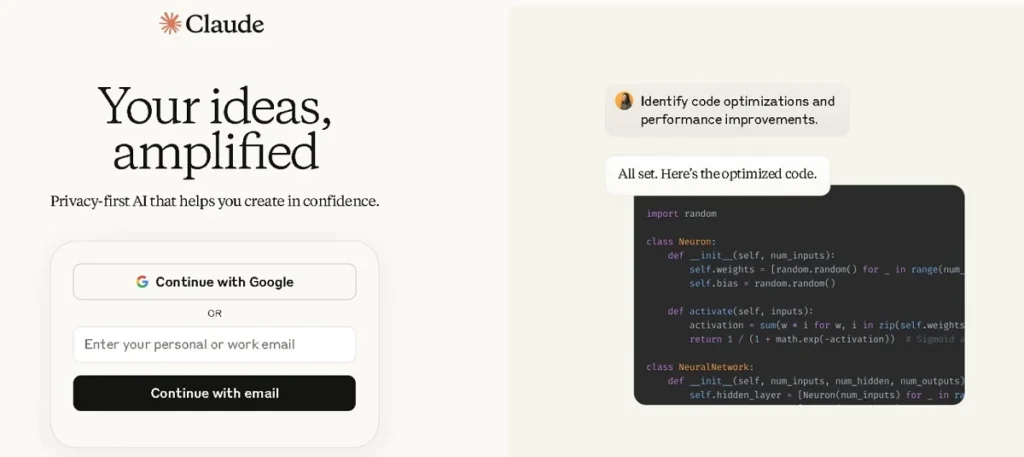
Whether you’re drafting emails, analyzing documents, or summarizing academic content, Claude offers excellent performance with reduced risks of hallucinations. Its thoughtful tone and reasoning capabilities make it one of the most lovable AI tools in 2025 for professionals, educators, and students.
Perplexity AI
Perplexity AI merges AI-driven responses with real-time web search, making it the go-to tool for users who demand up-to-date and evidence-backed information. Unlike static models, Perplexity can cite sources directly from the web, ensuring transparency and trustworthiness.
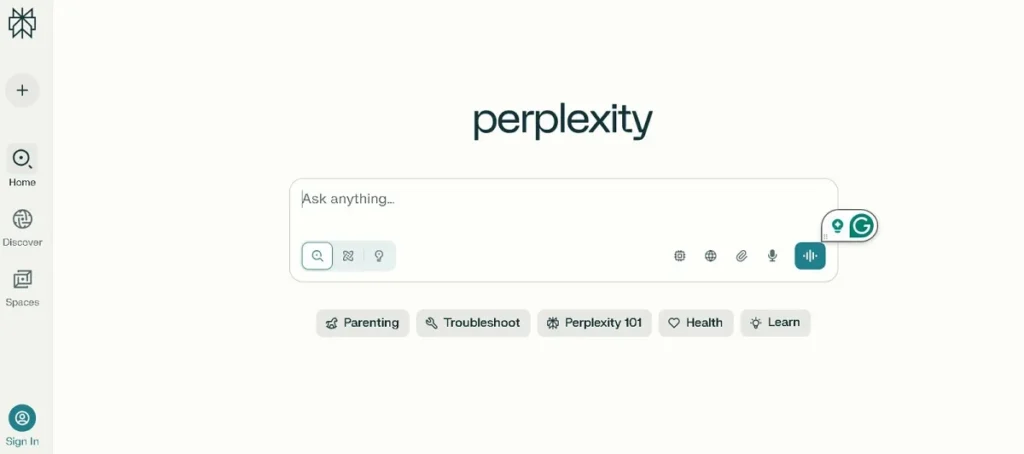
Students, journalists, and researchers particularly love this feature, as it streamlines fact-checking and eliminates misinformation. If you’re looking for an AI alternative in 2025 that delivers smart, reliable, and current answers, Perplexity AI is your perfect match.
Gemini by Google
Formerly known as Bard, Gemini by Google takes full advantage of Google’s massive data ecosystem. Integrated with tools like Google Docs, Gmail, and Sheets, Gemini allows users to draft content, analyze spreadsheets, and manage communication, all using voice or image inputs.

Its context awareness across different Google services makes it a productivity powerhouse for creatives and professionals. Gemini is one of the best AI tools in 2025 for anyone embedded in the Google Workspace ecosystem.
Mistral & Mixtral (Open Source)
Mistral and Mixtral, developed by Mistral AI, are high-performance open-source AI models built for speed, scalability, and transparency. These models are ideal for developers and tech startups looking to deploy AI capabilities on their own infrastructure.
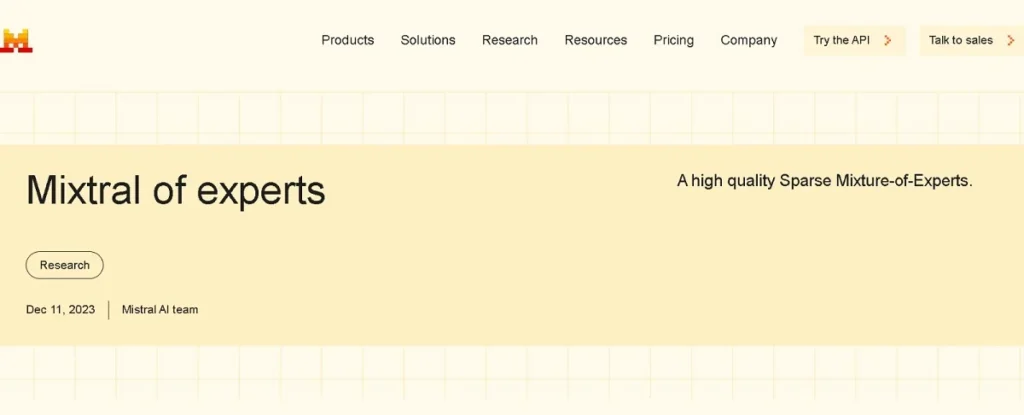
With competitive performance to proprietary models, Mistral gives you total control over customization, deployment, and privacy, making it a standout among the growing demand for ethical, transparent AI alternatives in 2025.
Pi by Inflection
Pi is not your average chatbot; it’s a digital friend. Created by Inflection AI, Pi is emotionally intelligent, kind, and empathetic, focusing on delivering a human-like experience. Ideal for users who prefer a softer and more conversational tone, Pi helps with journaling, daily reflections, casual conversations, or even venting your thoughts.
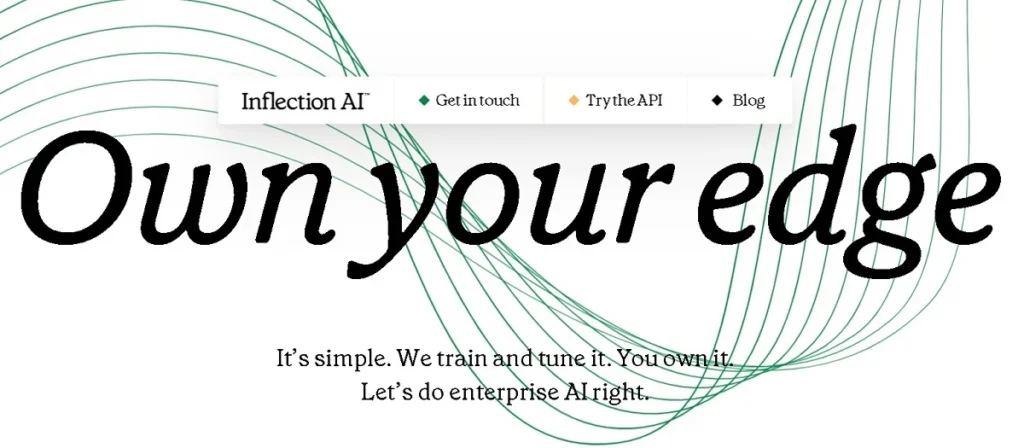
For those seeking an AI companion that feels emotionally aware and less robotic, Pi is the most lovable choice in 2025.
HuggingChat by Hugging Face
As one of the most trusted open-source AI platforms, HuggingChat emphasizes transparency, community involvement, and customizability. Unlike closed AI models, HuggingChat allows developers to inspect, modify, and fine-tune their AI experience.
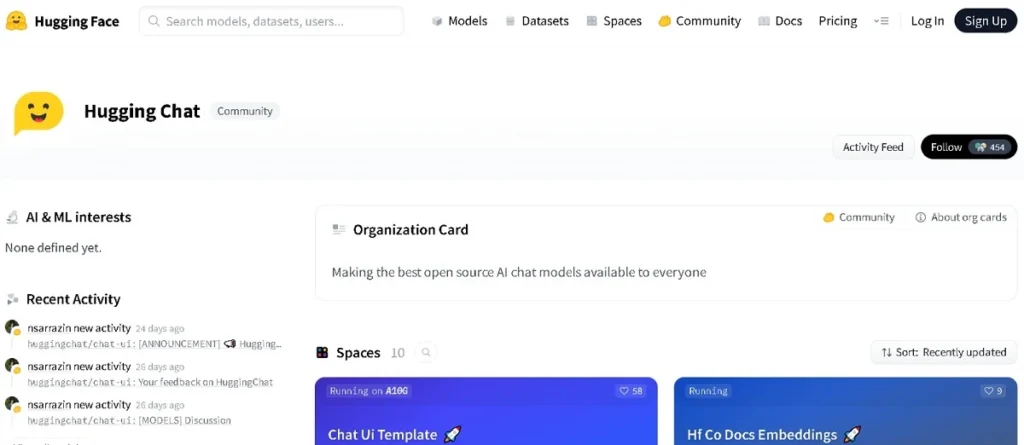
It’s also privacy-focused, your data isn’t stored or monetized. Whether you’re building your own AI assistant or just want a chatbot you can trust, HuggingChat ranks high among AI alternatives in 2025 for developers and ethical users alike.
Open Assistant
Built by a dedicated community of volunteers, Open Assistant brings a ChatGPT-style interface without being tied to big tech. It’s entirely open-source, privacy-focused, and improving rapidly with feedback from real users.
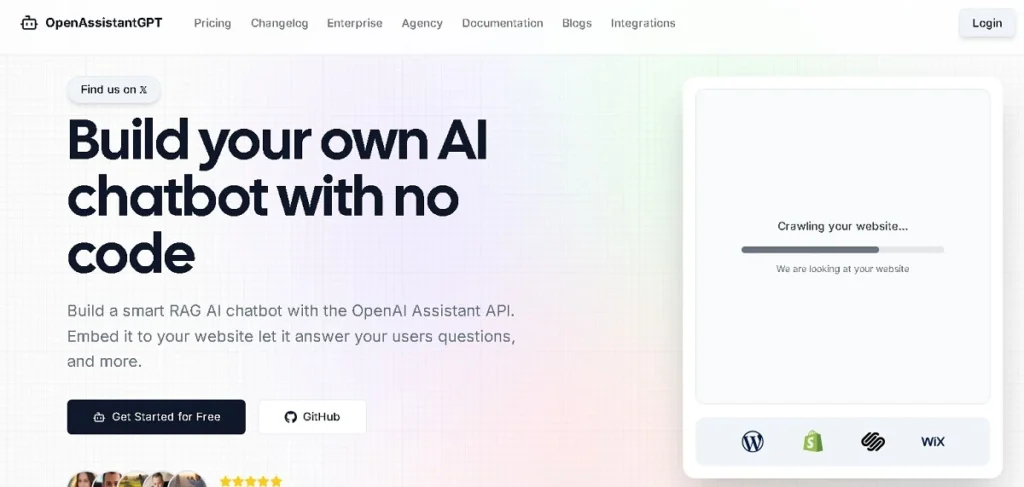
Developers and businesses can fork the code, integrate their own models, or simply use it as a free alternative to expensive AI subscriptions. If you’re looking for a grassroots AI alternative that champions transparency, Open Assistant is a strong contender.
You.com AI
You.com is a privacy-first AI platform that blends search engine functionality with generative AI tools. It includes built-in modules for writing code, generating content, and searching the web, all within a single unified interface.
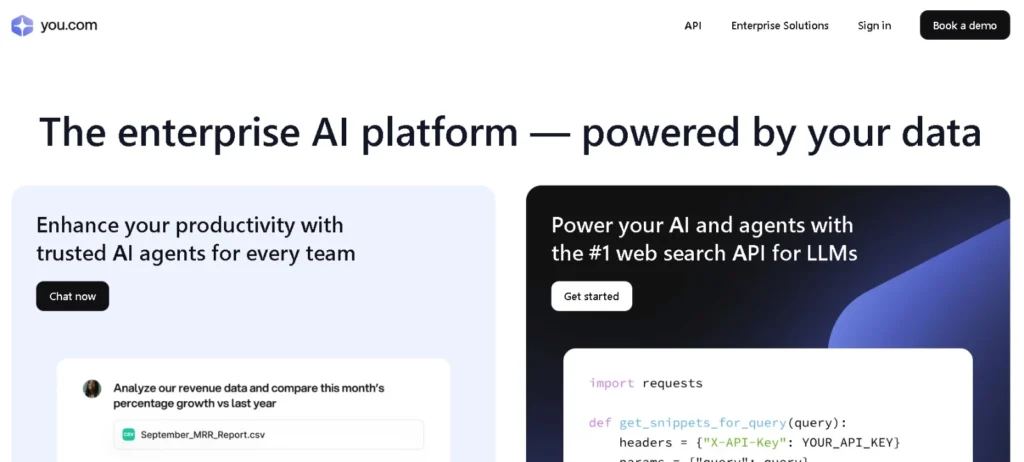
Unlike traditional search engines, You.com prioritizes user privacy, making it perfect for digital professionals, marketers, and creators who want fast answers without data tracking. As AI and privacy concerns grow, You.com emerges as one of the most practical and lovable AI tools in 2025.
Read: Humanize AI Content
Features That Make These AI Tools Lovable
What makes these AI alternatives in 2025 stand out isn’t just performance, it’s how they treat the user. These tools are built with human-centric values and practical usability in mind. Here’s why people are falling in love with them:
- User-first design and simplicity: These tools are intuitive and easy to use, even for non-techies. Whether you’re writing content, searching the web, or managing data, these AI platforms focus on clarity, ease, and a minimal learning curve. You don’t need to be a developer to use them productively.
- Ethical data handling and transparency: Privacy matters now more than ever. Many of these ChatGPT alternatives prioritize ethical practices, like not storing your data, offering open-source transparency, and ensuring users remain in control of their information. That’s a big plus for anyone skeptical of “big AI.”
- Specialization in creative, academic, or niche tasks: From helping students research faster to assisting writers with stylistic tone, many of these tools are tailored for specific tasks. This specialization makes them incredibly efficient compared to one-size-fits-all platforms.
- Community support and open contribution: Tools like HuggingChat, Open Assistant, and Mistral thrive on community involvement. Developers can tweak the code, suggest features, or even build entirely new apps. This collaborative spirit creates a more transparent, adaptable, and lovable AI experience.
Use Cases: Who Benefits From These Lovable AI Alternatives?
Not every AI tool fits everyone. That’s why these lovable AI alternatives in 2025 stand out, they cater to real-world needs and diverse user groups:
- Freelancers and Solopreneurs: Whether you’re managing social media, writing content, or automating client responses, tools like Claude or Pi can help solo workers stay efficient without feeling overwhelmed. These tools are intuitive, low-cost (or even free), and support creative workflows, perfect for independent professionals looking to stay competitive.
- Teachers, Researchers, and Students: Academic users need reliable, citation-backed answers and tools that help simplify complex ideas. Perplexity AI is great for real-time, factual search and structured responses, while Claude excels at summarizing long documents and helping with paper drafts, ideal for study and teaching.
- Startups and Small Businesses: Budget-conscious yet innovation-driven businesses can leverage tools like You.com and Gemini for customer support, content creation, and internal productivity. Many of these tools integrate with services like Slack or Google Workspace, helping teams collaborate better without hefty enterprise fees.
- Developers Needing Customization and Control: For devs and tech startups, tools like Mistral, Mixtral, or Open Assistant offer high customization, open APIs, and flexible deployments. If you’re building a product, chatbot, or embedding AI in software, these open-source AI models provide complete control without licensing nightmares.
- Privacy-Conscious Users: Concerned about data tracking and AI misuse? Tools like HuggingChat, You.com, and Open Assistant prioritize transparency and user privacy. They don’t store your data, are built by independent communities, and give users more control over how their information is processed and used.
How to Choose the Right AI Tool for You
With so many AI tools available in 2025, selecting the right one can feel overwhelming. But the key is to align the tool with your specific needs, values, and daily workflow. Here’s a breakdown of what to consider when exploring ChatGPT alternatives or AI tools tailored to your goals:
Consider Your Primary Use Case
Ask yourself: What do I need AI to help me with?
Different tools excel in different areas:
- For writing and summarizing, Claude and Pi provide thoughtful, articulate output with a human touch.
- For coding and technical assistance, Mistral, Mixtral, and Open Assistant offer open-source freedom and deeper control.
- If your work involves research and fact-checking, Perplexity AI shines with real-time web integration and citations.
- For design, organization, or task management, tools like Gemini integrate seamlessly with your Google Workspace.
By clearly identifying your primary use case, be it content creation, learning, programming, or customer support, you’ll quickly narrow your options.
Open Source vs. Proprietary AI Tools
This choice impacts flexibility, privacy, and support:
- Open-source AI alternatives (like HuggingChat, Open Assistant, or Mistral) are ideal if you value transparency, community-driven development, or need to host and customize your own models.
- Proprietary tools (like Claude, Gemini, or Pi) offer refined interfaces, consistent updates, and stronger customer support, perfect for users who want a plug-and-play experience without technical maintenance.
If you’re a developer or startup looking to embed AI, open-source gives you more control. For solo workers or teams that prioritize ease of use, proprietary platforms may be a better fit.
Privacy Needs and Budget Constraints
Budget and data handling are critical factors:
- If you’re cost-conscious or a privacy-first user, tools like You.com, HuggingChat, and Open Assistant offer free tiers and privacy-friendly policies.
- Proprietary options often offer subscription-based pricing but come with advanced features and integration support.
Always check the platform’s data usage policy, especially if you’re dealing with sensitive client or project information.
Integration with Your Existing Tools
AI tools that integrate smoothly with your current workflow save time and effort:
- Gemini works beautifully within Google Docs, Gmail, and Sheets, a major plus for professionals using Google Workspace.
- Claude and Pi can be embedded in other apps or accessed through browser extensions or mobile apps.
- You.com offers modular tools for writing, coding, and searching, all in one unified interface.
Make sure the AI tool you choose can plug into your project management system, CRM, or communication tools for optimal efficiency.
Also Know: Best WordPress CRM Plugins
Final Thoughts
In conclusion, the landscape of AI tools in 2025 is more diverse and personalized than ever before. While mainstream platforms remain powerful, many users are turning to lovable AI alternatives that better match their specific needs, values, and work styles.
Whether you’re a freelancer looking for a privacy-first assistant, a student in need of a research-savvy AI, or a startup founder seeking customizable open-source solutions, there’s an ideal tool waiting for you.
These alternatives stand out for their ethical approach, user-friendly design, and specialized capabilities. The key is to explore, experiment, and choose the AI that aligns best with your goals, personality, and workflow.
